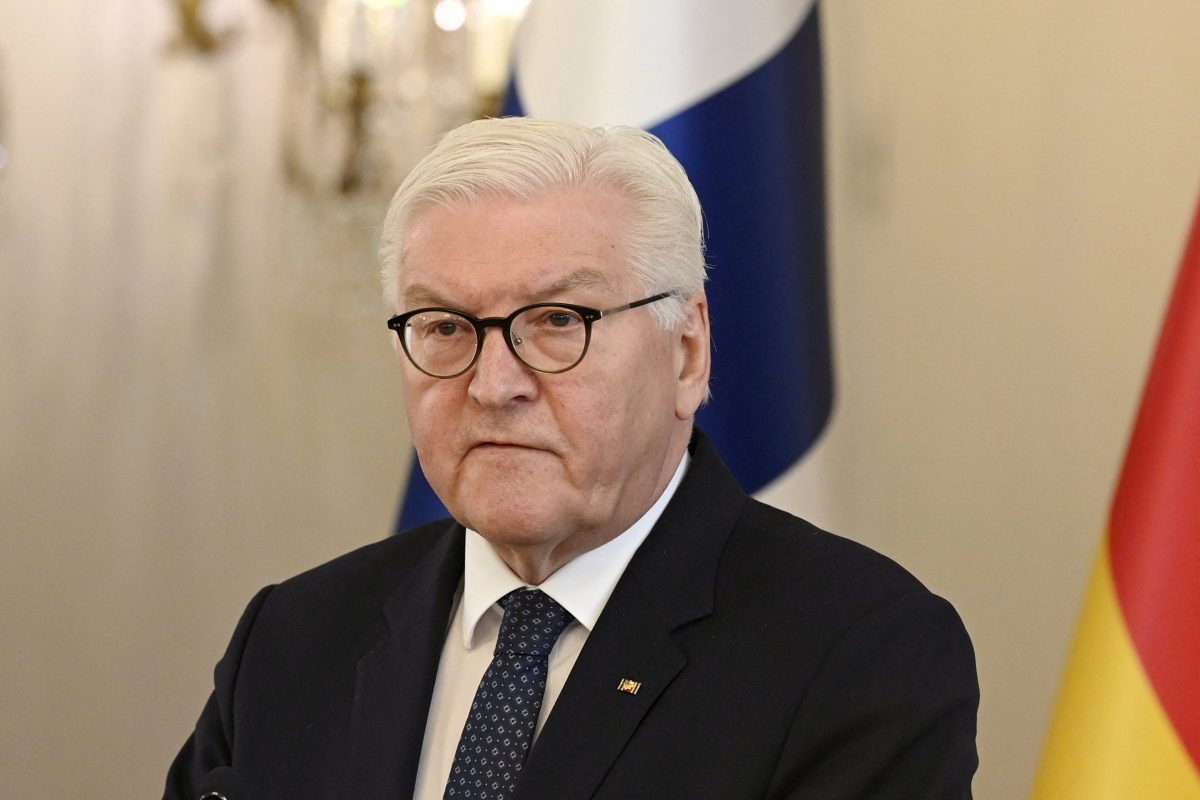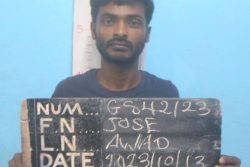FRONTLINES NORTH OF KHERSON, Ukraine, (Reuters) – Russia’s invasion of Ukraine has plunged Europe into an era of insecurity, Germany said today, a day after Russian President Vladimir Putin predicted a “dangerous” decade ahead.
German President Frank-Walter Steinmeier, who is from a wing of Germany’s Social Democrats that long argued for closer economic ties to Moscow, said the Feb.24 invasion had ruptured those hopes.
“When we look at the Russia of today, there is no room for old dreams,” Steinmeier said, referring to former Soviet president Mikhail Gorbachev’s dream of a “common European home”.
“It has also plunged us in Germany into another time, into an insecurity we thought we had overcome: a time marked by war, violence and flight, by concerns about the expansion of war into a wildfire in Europe,” he said.
“Harder years, rough years are coming.”
Germany, which has joined European sanctions against Russia and weapons deliveries to Ukraine, has recorded the arrival of more than a million Ukrainian refugees and warned of possible energy shortages this winter after cuts in Russian gas supplies.
Putin, addressing a conference in Moscow yesterday, played down the prospect of a nuclear stand off with the West but accused Western leaders of inciting the war in Ukraine, which he says was justified by Kyiv’s expressed wish to join NATO.
Western dominance over world affairs was coming to an end and “ahead is probably the most dangerous, unpredictable and, at the same time, important decade since the end of World War Two”, Putin said.
The Russian leader insisted Moscow’s war in Ukraine, which he calls a “special military operation” was going to plan as both sides prepare for a key battle in Kherson in Ukraine’s south.
One of four partially occupied provinces that Russia declared annexed last month, the region controls both the only land route to the Crimea peninsula – seized by Russia in 2014, and the mouth of the Dnipro river that bisects Ukraine.
Ukrainian and Russian troops dug into muddy trench lines north of the regional capital, also called Kherson, exchanged rocket, mortar and artillery fire today, a daily ritual since Ukraine drove Moscow’s forces back toward the port city last month.
Ukrainian military regulations prohibited identification of the location in Mykolaiv province, bordering Russian-held Kherson.
Ukrainian soldiers manning a 120 mm mortar hidden in bushes loosed high explosive rounds in thundering bursts of flame at Russian positions around a grain silo less than a km (half a mile) away.
Hennadyi, 51, said the Russians were using the silo for cover and observation. It poked like a finger above a vast expanse of cloud-shaded fields, a column of smoke floating behind it.
Hennadyi said Ukrainian gunners were targeting Russian armored vehicles and ammunition behind the silo and avoiding hitting it because of its importance to the agricultural region. But they did not have enough shells, he said.
“For every one shell that we send, they send back five,” he said amid the shellfire duels. “They shoot at us most of the time.”
Sergey Aksyonov, the Russian-appointed leader of Crimea, said work had been completed on moving residents seeking to flee Kherson to regions of Russia ahead of an expected Ukrainian counter-offensive.
Ukraine has accused Moscow of forcibly removing some people and recruiting others to fight against their will. Its general staff said what it called Russia’s so-called evacuation was continuing, with hospital and business equipment removed and extra Russian forces deployed in empty homes.
Reuters was not able to verify either report.






